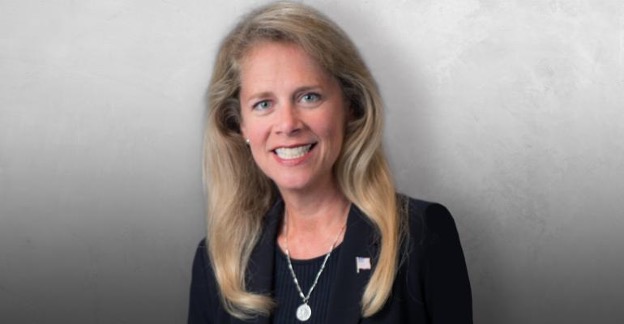No products in the cart.
Uncategorized
A High-Level View of Association Meetings

A High-Level View of Association Meetings
Originally published in MeetingsNet, May 2023. Reprinted with permission
Rob Carey | May 03, 2023
ASSOCIATION CONVENTIONS AND EXPOS
Karin Soyster Fitzgerald, AMC Institute’s new chief operating officer, came up through the meetings department to arrive in the C-suite. Here’s what she sees happening with association meetings right now.
In mid-February, the AMC Institute appointed Karin Soyster Fitzgerald, CMP, CAE, as its chief operating officer. The organization represents 180 association management companies that manage more than 1,800 associations and provide project support to another 900 associations.
Fitzgerald brings more than 30 years of meetings, membership, and operations experience to AMCI from both trade associations and professional societies. In fact, the first half of her career was spent in meeting and education departments, where she rose from being a novice meetings manager to a vice president of education in less than 15 years. Then, after five years as a vice president of membership services, Fitzgerald has been a chief operations officer for two associations over the past decade.
Now, her executive role at AMC is focused on advancing the value of the AMC model to associations. “The AMC model has seen tremendous growth in the last few years—even through Covid—and I am thrilled to join an association that represents such a unique industry,” said Fitzgerald.
But throughout a career of escalating roles and responsibilities, Fitzgerald has always maintained her keen interest in the meetings function and its importance to associations’ future health. MeetingsNet caught up with her recently to ask about her observations of the meetings landscape.
MeetingsNet: Which aspects of your new role are you most looking forward to taking on?
Karin Soyster Fitzgerald: I have a much more hands-on role than I’ve had over the last 15 years, with responsibilities in many other areas other than strategic oversight. What I’m looking forward to the most is learning more about the association management company model. While it has been around my entire association career, I’ve never worked for one, so representing the entire industry is a new challenge. The AMC community has grown substantially since the start of the pandemic, as boards have looked for solutions to run their organizations more efficiently.
MeetingsNet: What’s a good way for association planners to find some new, innovative ideas for their events?
Fitzgerald: It is so valuable for planners to see first-hand what other organizations are doing. I’m hearing more and more about planners swapping out time at each other’s events, where they help with on-site duties in exchange for the opportunity to find new ideas for their own events. It’s a win-win for both groups.
MeetingsNet: After Covid, how should associations maintain their virtual-attendee components for annual meetings so that they get a wider audience but not cannibalize in-person attendance? And what’s your take on virtual-networking elements for those meetings?
Fitzgerald: Virtual is definitely here to stay, whether stand-alone or hybrid. As we learned during the pandemic, hybrid events are costly and require extensive coordination. Recording sessions for on-demand viewing afterwards seems to be the most economical approach. The recordings can be edited to focus on content, without the parts of a session that pertain only to the live audience.
As for virtual networking, people became “Zoomed out” in the pandemic and I’m hearing less and less about it. Virtual networking can still be valuable, but it must be done in small chat rooms. Some virtual platforms offer chat rooms that randomly change participants on a timer, and that seems pretty interesting.
MeetingsNet: What are the most important things that associations’ meetings departments should understand as they strategize with their executives about in-person meetings?
Fitzgerald: Follow the money! When I first started in the association world, dues were the largest revenue source. That changed drastically over the years, with meetings and sponsorships becoming a much bigger pieces of the pie. With the pandemic, though, many organizations have moved towards relying too heavily on meetings income. Understanding your organization’s bottom line is paramount, regardless of whether you work for a non-profit or a for-profit organization. Whatever your role in an association, you need to know the value of your work and how it fits into the big picture.
MeetingsNet: If you could get association executives to better understand one thing about the meetings function, what would it be?
Fitzgerald: Right now, the biggest concern is understanding that prices are not going down, ever. The costs of running an event—from flights to guest rooms to materials to AV to F&B—are way up across the board, and executives need to know that adjustments to the program simply must happen.
MeetingsNet: What else should associations’ planning departments take into consideration?
Fitzgerald: From a logistical perspective, with costs continuing to escalate at a rapid pace, I encourage planners to reach out to their venues ahead of time and see which other groups will be in-house at the same time. This way, the planners for overlapping events can share their food-and-beverage requirements as well as their specs for audiovisual and rigging, and maybe figure out where they can get better pricing or share some costs.
From a strategic perspective, sustainability and community service are areas that are becoming more and more important to younger generations, so offering on-site programs for attendees to give back to the host destination is a very attractive element to get them to attend events.
Also, I’m quite concerned about the growing sentiment for boycotting cities or states due to political issues. I hope this slows down, because such boycotts usually end up hurting the wrong people in a destination. A meeting boycott lands on the backs of the local hospitality workers who don’t have much influence politically, and their livelihood relies on our business. Organizing fundraising or other events for causes in a destination is a much better practice.

